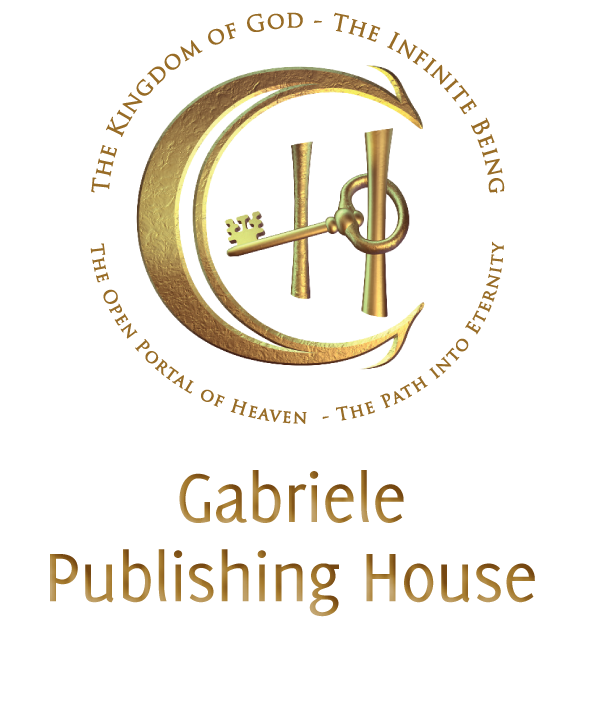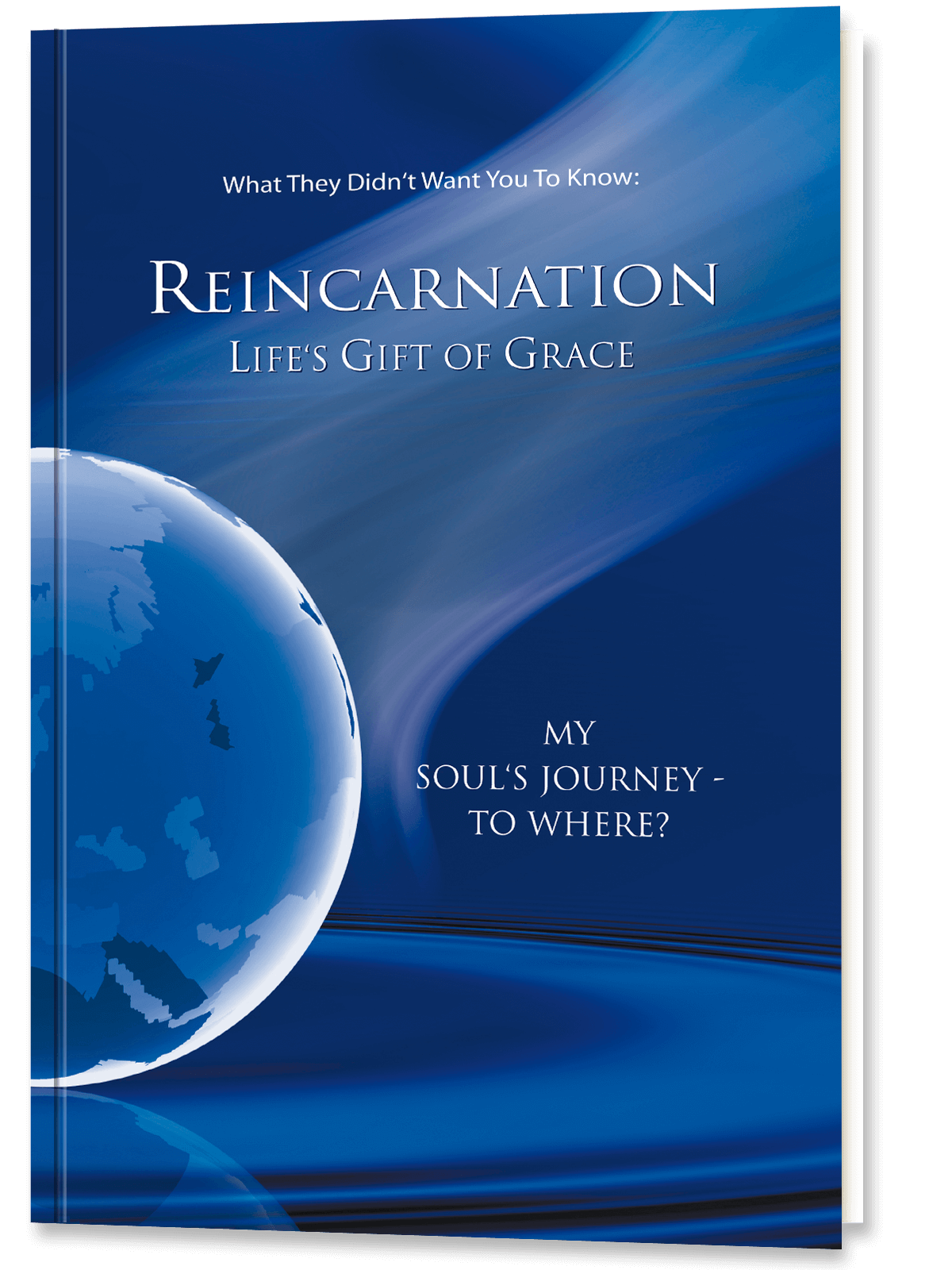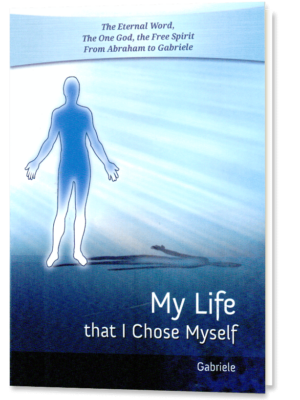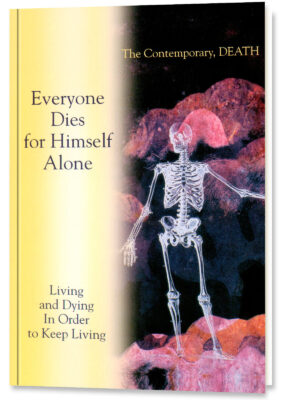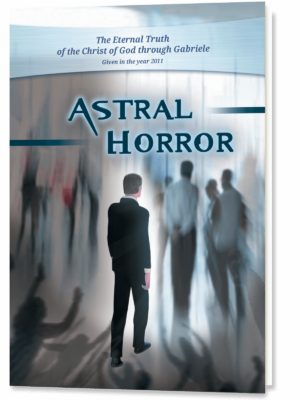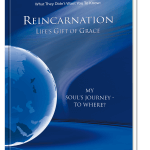Your cart is currently empty!
Reincarnation: Life’s Gift of Grace
My Soul's Journey - To Where?
$8.90
In stock
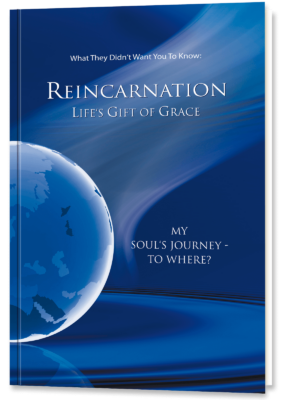
Gabriele Publishing House The Word
ISBN: 978-1-890841-64-5
Article Nr.: S380en
73 pages, Softbound
Weight 118 g, Dimensions 21 x 13.9 x 0.6 cm
Product Information
Reincarnation: Life’s Gift of Grace
Jesus, Elijah, John the Baptist…and Reincarnation
_________________________
Reincarnation and What the Catholic Church at the Council of Constantinople
Hid From Humankind
Learn what Elijah, John the Baptist and Origen knew about reincarnation. Questions upon questions could be asked: What’s the truth about the Catholic Church and reincarnation? Why was the truth of Jesus and reincarnation hidden from us at the Second Council of Constantinople? Where is our homeland… are we at home in this world, or are we only passing through? Is it visible matter that carries us – or did we come from somewhere else? Find the answers in this book! What is very clear is what the prophets taught is true: There is no Hell. There is no death!
Feelings and thoughts, vague inklings, have been raised by humankind since the beginning of time on the “wherefrom” and “whereto,” the “whys” and “what fors.” Elijah and John the Baptist knew about reincarnation — and so did Jesus Himself teach reincarnation. Origen, an original Christian also knew about reincarnation, and his teachings spread across Europe in the third century. However, the early church (ancestor of the Catholic Church today) tried desperately to snuff out the teachings about reincarnation, including at the Second Council of Constantinople. But the truth remains for those who seek it!
Seldom have these questions about life after death been answered so clearly and unmistakably as in this book. Exploring the teachings of scholars like Origen and prophets like Elijah, John the Baptist and the great Jesus of Nazareth, this book also draws upon prophetic teachings of today, through Gabriele. Reincarnation, finally explained from a Christian viewpoint — how it was taught by Jesus so long ago.
The importance of understanding the truth of Reincarnation
The knowledge of reincarnation opens our eyes to understanding the meaning of our life, why we are on Earth and what task we have: namely, the chance to use our existence on Earth and develop ourselves back to what we are in our spiritual origin: divine beings, whose life lasts eternally. Reincarnation is a life-changing message, which was also known in Early Christianity before the emerging Catholic Church supplanted it. This book delivers facts on how and why the knowledge about life after death, about karma and reincarnation disappeared from western Christianity. It answers fundamental question of humankind and clarifies many errors and wrong ideas about reincarnation. After all, there is no death.
This book asks poignantly:
“What course would history have taken if a large part of mankind had known that negative deeds could fall back on the perpetrator in this or a future life on earth, if he did not repent in time and ask for forgiveness! Would there have been so many wars “in the name of God”, for instance, or the unscrupulous exploitation of nature, the effects of which we are experiencing today?”
Understanding Origen’s Teachings of Reincarnation
Origen’s understanding of reincarnation is obvious when we look to his teachings. However, his teachings of truth also made him a target and, ultimately, the victim of a growing church hierarchy.
Like many other Early Christians, Origen also became a victim of the persecution of Christians, which Emperor Decius imposed over all the Empire in the year 250. He died in 254 as a result of the torture he had suffered. Yet, like all Early Christians, Origen knew about reincarnation. In his commentary on the Gospel of John the Baptist, Origen wrote the following:
We should also have to enquire into the distributions of the life of each soul, and as to her [the soul’s] departure from this life, and whether it is possible for her to enter into a second life in a body or not, and whether that takes place at the same period, and after the same arrangement in each case, or not; and whether she enters the same body, or a different one, and if the same, whether the subject remains the same while the qualities are changed, or if both subject and qualities remain the same, and if the soul will always make use of the same body or will change it.15
And in reference to reincarnation, in Origen’s commentary on the biblical story of Jacob and Esau (Genesis: 25), he says:
… we feel that he [Jacob] was worthily beloved by God, according to the desserts of his previous life, so as to deserve to be preferred before his brother …16
We also know about Origen’s teachings of reincarnation by the written accounts and viewpoints of his contemporary supporters and critics.
The preexistence of the soul was also part of the knowledge that Origen spread. Let us allow a contemporary of Origen (185-254) to speak. Bishop Cyril of Alexandria reported:
For he [Origen] said that souls exist before bodies and lapsed from holiness into evil cravings and fell away from God; for this reason He condemned them and embodied them, and they are in the flesh like in a prison.17
To Elijah, John the Baptist, Jesus and His Disciples, Reincarnation was true. Origen knew this.
References to Reincarnation in the New Testament
By Jesus’s own words in the Bible, it is easy to interpret that reincarnation was well known among His followers at that time. In the New Testament, there are clear indications of reincarnation, including in Jesus’s words about Elijah and John the Baptist. As the book explains,
Referencing reincarnation, Jesus said about John the Baptist: “He is Elijah who is to come.”11 And later “… but I tell you that Elijah has already come, and they did not know him, but did to him whatever they pleased.” 12 Jesus asked His disciples: “Who do men say that the Son of man is?” And His disciples answered: “Some say John the Baptist, others say Elijah and others Jeremiah or one of the prophets.” 13 So, as Jews, the contemporaries of Jesus assumed reincarnation, that a person can incarnate several times.
Also:
In the Letter of James the term “wheel of birth” is even found in the original Greek text:
The tongue is an unrighteous world among our members, staining the whole body, setting on fire [the course of nature/the wheel of birth], and set on fire by hell.14
The lack of understanding of this particular passage in the Bible could be false or mistaken translations:
This means that if we do not curb our tongue, we set causes that could bring further incarnations. The term is a misleading translation. Different Bibles offer different translations, for example: in the Luther Bible, “the whole world” or in the German Unity Bible, “the wheel of life” or in the King James Bible, the “course of nature.”
What happened at the Second Council of Constantinople? Origen, Reincarnation and the early Church
Unlike Origen, who taught reincarnation to the early Christians, the eastern Catholic Church just two centuries later tried to eradicate his teachings. But not only did they suppress the truth about reincarnation, they also suppressed and condemned Origen himself. Casting upon him “anathema”, the Catholic Church spurned reincarnation at the Second Council of Constantinople, calling the teachings wicked. As the book explains:
In 543 at a synod of the Eastern Church in Constantinople, and in preparation for this war of eradication, Justinian had Origen’s teachings banned, insofar as they were still known. This was done in nine martial-sounding anathemas, which ended in the sentence:
Anathema to Origen … together with his nefarious and execrable and wicked doctrine and to whomsoever there is who thinks thus, or defends these opinions, or in any way hereafter at any time shall presume to protect them.20
Reincarnation as such was not expressly mentioned in these anathemas, but they did include the preexistence of the soul and the “restoration of all things,” that is, the teaching that all people and souls would again be with God one day, thus teaching that there is no “eternal damnation.” With this, the Church put an end to the Early Christian teaching of reincarnation. And why did this happen? Because the belief in reincarnation frees people from all dogmas and ecclesiastical laws. Ten years later, the anathemas on reincarnation, supplemented by six more, were reinforced at the Second Council of Constantinople in 553.
As the book explains, an understanding of reincarnation frees people from the bindings placed upon them by dogmatic rituals, rites and subservience demanded by the churches — Catholic, Orthodox or Lutheran-Protestant alike.
If people understood Reincarnation, then no one could believe in “Hell.”
The Catholic Church bans reincarnation and condemns all those who understand it.
The Catholic churches form of excommunication is called “anathema” or “anathema sit” (literally, in Latin, “curses be upon them”). It is this form of excommunication that also is a condemnation to “Hell.” As the book explains:
…And according to Catholic doctrine someone who is “excommunicated” lands in the eternal fires of hell:
…The Holy Roman Church, founded through the word of our Lord and Redeemer, firmly believes, confesses and proclaims that no one outside of the Catholic Church, neither pagan nor Jew, nor non-believer or one separated from the unity will take part in eternal life, but will rather fall victim to the eternal fire, which is prepared for the devil and his angels, if before his death he does not join it (the church).2
It is through this “anathema sit,” therefore that the Catholic Church seeks to condemn to hell anyone who dares not believe its false teachings against, among other things, reincarnation. Indeed, reincarnation is particularly important for the Catholic Church (And other institutions) to cover up. For, if anyone believes in reincarnation, they will understand that condemnation to hell is not actually possible. There is no concept of “Hell” for the person with an understanding of reincarnation.
Jesus did not teach Hell, but Reincarnation. Origen’s Teachings of Hope and Comfort.
Reincarnation is “Life’s Gift of Grace”, and the truth lies in direct contrast the Catholic Church’s oppressive declarations of an eternal fire (especially for those who stand up against it.) Ultimately, concealing reincarnation is a tool of control:
The outer religion, the church religion, keeps a person unfree. It has rules and regulations, dogmas, rites and rituals. It is an institution of cults and rituals and not lastly, an institution that preaches that a person who doesn’t fulfill the rituals and church rules is eternally damned – by God! This means he is damned to the unceasing torments of hell, to unbearable tortures, cast out into the furthest place from God. But there is no eternal damnation in the Kingdom of God. This threatening message of “eternal damnation,” which amounts to a teaching of hatred, could only take possession of those believing in the Church, because the Church, by suppressing the knowledge about reincarnation, denied God’s grace, as it were, and plunged human beings, His children, into the darkness of a dismal, helpless state of being lost.
Origen understood that this teaching of reincarnation gives optimism for life as a human being!
It is an optimistic teaching that gives hope and comfort. As already mentioned, Origen taught reincarnation in the third century. And at the 5th Ecumenical Council of Constantinople in the year 553, this teaching was damned and cursed. Not only was the teaching of Origen condemned – that the soul existed already before its birth – his optimism was also damned: that in the end, everything would be good, that all things return to God. By damning this, the church was able to threaten us with hell.
Jesus did not teach us damnation to an eternal hell; rather, He gave us hope with the assurance that one day, we will all be Home, again. and He showed us the way.
For More about Reincarnation which Origen knew, the teachings of Jesus and Life After Death
Reincarnation is a critical piece to understanding Jesus of Nazareth and the teachings of the Free Spirit — the teachings of love for God and neighbor. This book, Reincarnation: Life’s Gift of Grace is also available as an eBook. Other books on the topics of Life After Death include:
- An Q&A on Life After Death: Where Did I Come From? Where Am I Going? (See also: the eBook)
- Two books, which elaborate on the dangers of spiritual manipulation, reincarnation, the astral dangers associated with negative thinking and acting: Astral Horror (eBook) and Me, Me, Me – The Spider in Its Web (eBook).
- A revelation by Christ Himself on the Soul on Its Path to Perfect (or: eBook), a book which explains the levels of growth required of a soul to return to Heaven — from where we all came.
You may also like…
-

My Life that I Chose Myself
What is life, anyway, and why is it shaped so differently for each person individually?$8.90
plus shipping -
New

“Security and Safety in Christ” & “Where Does Our Fear Come From?” (CD)
Fear? ...Why? There is only One who can give us security—Christ. 2 Meditations.$12.00
plus shipping -

Living and Dying In Order to Keep Living
Whoever learns to understand his life, will no longer fear death.$15.90
plus shipping -

Astral Horror
Warning and guidance: How souls can be influenced on this side of life and in the beyond.$12.90
plus shipping
